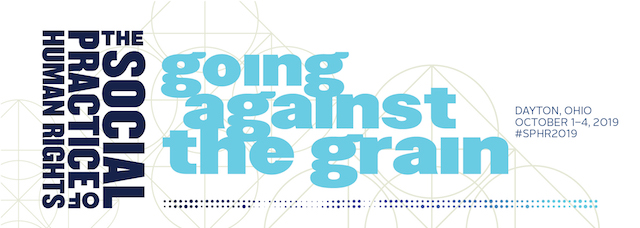Location
Reimagining and Decolonizing Human Rights
Start Date
10-2-2019 11:30 AM
End Date
10-2-2019 1:00 PM
Keywords
Human Rights, Critical Theory, Adorno
Abstract
In contending that “the freedom of philosophy is nothing but the capacity to lend a voice to unfreedom,” Adorno recognized that the role of philosophy is to illuminate the deformity of that which is deformed in the structures of power and the institutions that preserve the status quo. A critical treatment of those concepts that obfuscate the realization of emancipation led Adorno, along with Horkheimer, to claim that, “the purpose of human rights was to promise happiness even where power is lacking.” In other words, the language of human rights served to stifle the experiences of the oppressed classes under the veneer of an ideological assurance. Since Horkheimer and Adorno initially wrote their critical remarks, the language of human rights has ascended, for better or worse, as the primary discourse in responding to issues of global justice. In this context, the issue of human rights, in both its failures and successes, must be brought for a critical re-evaluation. Is the concept of human rights redeemable in serving the needs of the oppressed? In this paper, I will identify the challenges of traditional models of human rights theory and practice that has either taken a formal, legalistic bent, or an unreflective, and therefore ultimately dangerous and self-defeating, practical impetus. I will examine the critical possibilities of developing a theory of human rights that emerges out of, rather than about, the experience of suffering, in defense of the lived values of freedom, equality, and fraternity.
Author/Speaker Biographical Statement(s)
Patrick Ahern, Ph.D. is a political and ethical philosopher whose research focuses on themes of Critical Theory, Early Modern Thought, Marxism, and Critical Social Justice. Currently, he is working on a research project examining the intersections of critical theory and human rights and another that examines the power of social and political inclusivity from a Spinozist perspective. He received his Ph.D. from Vanderbilt University and is currently serving as a Lecturer in the Department of Philosophy at the University of Dayton.
Included in
Facing Human Rights: Theorizing out of the Experience of Suffering
Reimagining and Decolonizing Human Rights
In contending that “the freedom of philosophy is nothing but the capacity to lend a voice to unfreedom,” Adorno recognized that the role of philosophy is to illuminate the deformity of that which is deformed in the structures of power and the institutions that preserve the status quo. A critical treatment of those concepts that obfuscate the realization of emancipation led Adorno, along with Horkheimer, to claim that, “the purpose of human rights was to promise happiness even where power is lacking.” In other words, the language of human rights served to stifle the experiences of the oppressed classes under the veneer of an ideological assurance. Since Horkheimer and Adorno initially wrote their critical remarks, the language of human rights has ascended, for better or worse, as the primary discourse in responding to issues of global justice. In this context, the issue of human rights, in both its failures and successes, must be brought for a critical re-evaluation. Is the concept of human rights redeemable in serving the needs of the oppressed? In this paper, I will identify the challenges of traditional models of human rights theory and practice that has either taken a formal, legalistic bent, or an unreflective, and therefore ultimately dangerous and self-defeating, practical impetus. I will examine the critical possibilities of developing a theory of human rights that emerges out of, rather than about, the experience of suffering, in defense of the lived values of freedom, equality, and fraternity.



